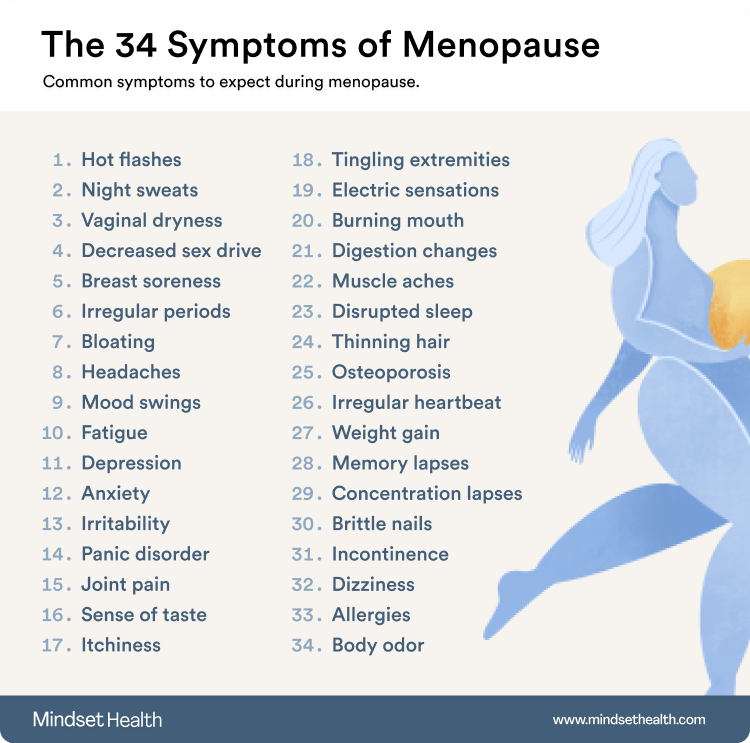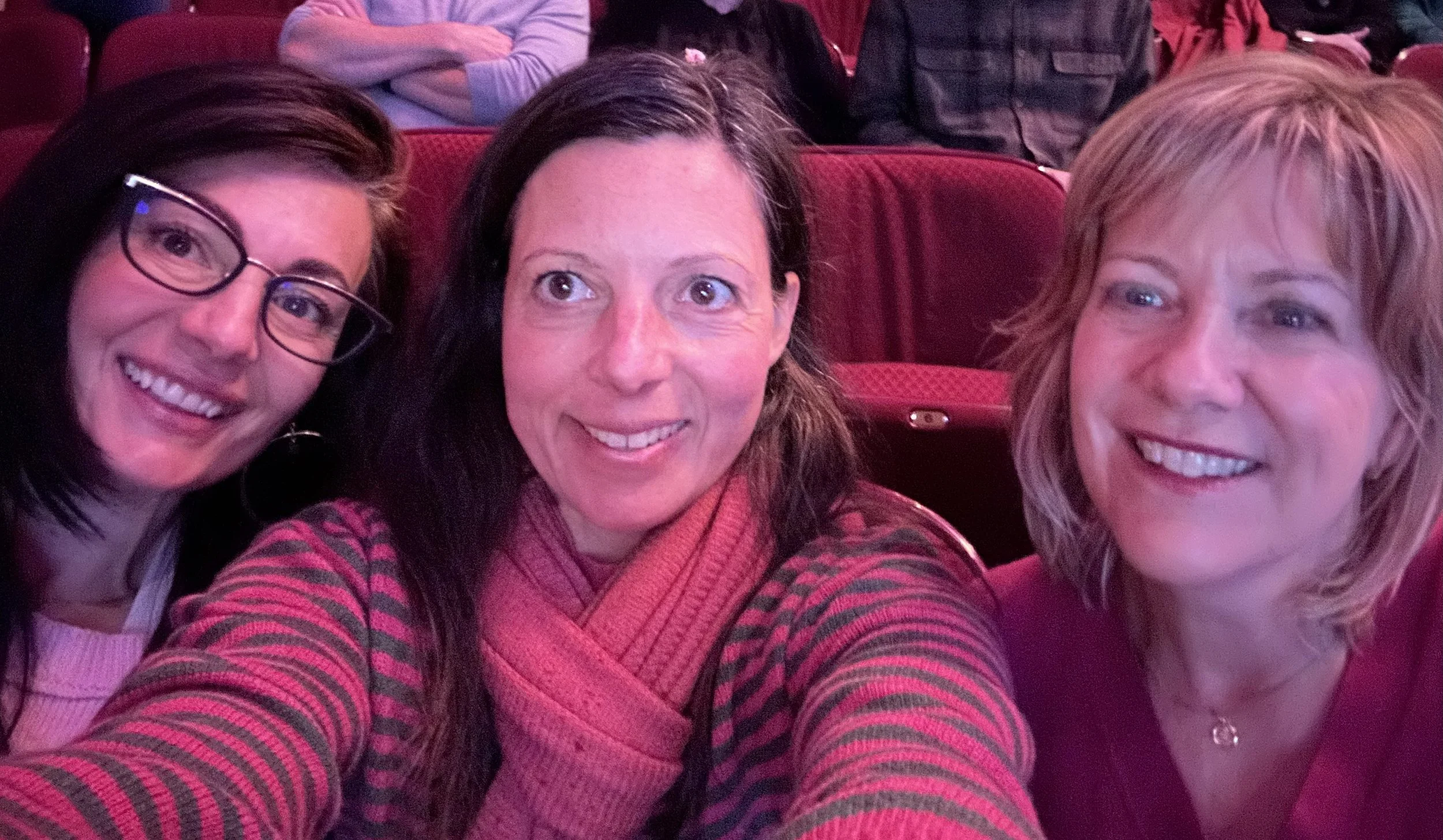Menopause Madness?
Or the Madness caused by menopause dismissal?
I remember having a conversation with a friend a few years ago. We were in our forties and she was saying how she felt crazy all the time—one minute she’d be laughing, the next crying, the next yelling at someone. We shrugged and said oh that darned perimenopause. Guess this is just how it is now for the next decade! Insert nervous laughter that quickly fades into far away deer in the headlights faces.
It didn’t even occur to us that maybe it didn’t have to be that way, that maybe she (nor her family) didn’t have to suffer through this.
Because, you see, nobody had talked to us about menopause or that there may be some medical interventions that could help.
Well, this past weekend changed me forever, because I did an inadvertent deep dive into menopause. Inadvertent because I didn’t mean to learn about menopause. I had registered for a presentation on midlife that my sister, Dr. Katie Branter, ND was giving together with coach Diane Lloyd from Inspired Results Group without really knowing what the subject was about.
I thought we were going to talk about my favourite topic, which is using the mid-life “crisis” as an opportunity for reflection about what you really want your life to look like in this second half.
Nope.
The webinar was… illuminating. And by illuminating, I mean simultaneously horrifying, heart-warming, hope-filling, and anger-inducing. Basically, all the emotions all at once.
Some definitions (as I understand them)
Perimenopause: the period beginning in your late 30s-40s where your hormones are going all kablooey as they prepare to shut down the ovaries and estrogen production. Think of it as a reverse puberty.
Yay. So fun.
Menopause: begins officially after you’ve not had a period for one year, usually in your early 50s. So basically, if you start menopause at 51 and live until 91, you are forty years in menopause, almost half your life. Some also call this post-menopause, but that feels like a glossing over the fact that many of the symptoms continue FOREVER. You are not POST. Your are still IN.
Menopause: Symptoms
Just so you get a sense of what ovaried persons may go through in perimenopause and menopause, here is a menu of common symptoms nobody wants to order from:
IS THIS WHAT IS GOING TO HAPPEN TO MY BODY? WHY DIDN’T ANYBODY TELL ME ABOUT THIS? WHY IS MY DOCTOR NOT TALKING TO ME ABOUT THIS????
Dude. Once again, please insert wide-eyed, deer in the headlights, freeze response.
And this list doesn’t even include the more uncommon ones like gum trouble and teeth falling out. Yes, you read that right. Turns out estrogen is really, really important and when it’s gone terrible things occur, like frozen shoulder, teeth falling out (I had to repeat that one because, the horror), brain function and the horrifyingly named vaginal atrophy (just slightly better than the term they used in the 80s which was “senile vagina”).
To continue my frightening descent down the menopause rabbit hole, my sister invited me to go to Bellingham on Sunday with her and Diane to see the M Factor: Shredding the Silence on Menopause. It was hosted by Dr. Kelly Casperson, author of You Are Not Broken: Stop Shoulding All Over Your Sex Life and included a panel with two women from Midovia, an organization that supports education on menopause in the workplace.
My sister Katie Branter, Me and Diane Lloyd at the beautiful Gateway Theatre in Bellingham for the showing of the M Factor: Shredding the Silence on Menopause. And we must have all got a psychic memo because we all wore pink. Also, I am still learning to look at the little green dot when I take a selfie :-/
Though the above statistics speak to the American experience, the Canadian experience is not much different.
Menopause in Canada
Here are some statistics from the Menopause in Canada Report:
10 million women in Canada are over the age of 40 (around one quarter of our population)
The average Canadian woman is going to be spending up to half her life in menopause
95% of women surveyed experienced menopausal symptoms.
Most women knew about hot flashes and night sweats but over two thirds of survey respondents didn’t know that urinary tract infections and heart palpitations were signs of menopause (like me. I didn’t know this) and 60% didn’t know that headaches/migraines, anxiety, depression and memory issues were also symptoms.
Less than a quarter of respondents said their family doctor proactively discussed menopause with them.
·And when respondents did seek out medical advice almost three quarters felt the advice to be not helpful or somewhat helpful while 40% felt their symptoms were undertreated.
The Need for Wraparound Supports
How people are able to move through difficult experiences and integrate them into a resilient narrative depends a lot on how the people around them react and the kinds of support they get. Clearly, the reaction to many of these women’s symptoms at their doctor’s office, at work, from their partner and society in general have not been positive. Which means they are left to suffer alone.
Women are feeling very lost and alone dealing with their symptoms, even when they have long-term partners, friends and extended family. I suspect this is partly due to the way women are socialized—they are the caregivers and to need care as opposed to give it feels like a failure. Not to mention all those other messages we get from society about needing to stay calm and not complain or we may be labelled as hysterics, shrews, Karens, or be told “it’s all in your head”, etc.
There are many things happening at this time in women’s lives. Children are growing up. Parents are ageing. Relationships may be under duress from external and internal stress. This turning off of the ovaries represents another coming of age as important, as all-consuming on the biopsychosocial front as puberty. In some ways, our bodies are volun-telling us to pause, take stock and really think about how we want this next half of our life to look like.
My Role as Counsellor
I see my role in this process as threefold:
1. I help people process and integrate their past—with all the negative and positive experiences and family of origin influences so that they can…
2. Better understand their present behaviours, thoughts, and beliefs and consciously decide which ones they want to keep and the ones they want to lovingly let go of to…
3. Become the unique, fabulous person they were put on this planet to become.
But this work can’t be done in a vacuum. Though integrating our stories and cultivating self-awareness is vital for a well-lived life (in my humble opinion), it needs to be in conjunction with taking care of our bodies: getting enough sleep and the support we need to keep our brains, hearts and libido functioning (yes, it turns out that sex is important for women too).
In terms of relationships, partners have a big role to play as well. Understanding the changes your partner is going through will help in terms of not taking their behaviour personally and finding the vocabulary to both support them through this change as well as find ways to mitigate the impact on the relationship. For example, one of the symptoms of menopause is unexplained anger. Who do you think gets the brunt of that? Yep, the partner. If this sort of pattern of behaviour goes on for too long, it can really negatively impact the relationship and counselling may be helpful.
Questions for Your Consideration
If you are a person with ovaries past forty:
How has perimenopause and menopause affected your life?
How has it impacted your well-being? Your relationships?
Do you speak openly about your symptoms? Have you spoken to your doctor?
How are you feeling about your body?
If you are a person in relationship with an ovaried person in their forties +:
How has it impacted your relationship?
How do you offer support?
What is coming up for you in terms of your own ageing process and mortality?
How are you talking to each other through this transition?
Postscript
There is so much to cover on menopause, that I could only lightly touch the tip of the iceberg in this post. But I do want to make note of two important omissions that could be whole books on their own (I imagine they already are).
Menopause and intersectionality: symptoms tend to be experienced at a higher frequency and intensity by women of colour, especially black women, mostly because of the ongoing stress of living in a racist, patriarchal society.
Menopause in the workplace—spoiler alert: though women over forty make up a quarter of the workplace, supports for any stage of a women’s reproductive life are very limited)
As my first response to anything panic-inducing tends to be to research the heck out of it, I ordered these books right away after watching the documentary. It’s gonna be a fun-filled November full of facts about menopause and the dire state of research on women’s reproductive health. And people say I don’t know how to have a good time…


